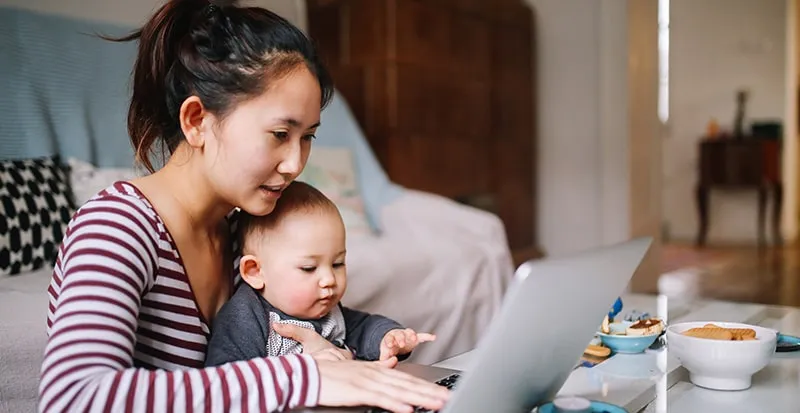Top Co-Parenting Blogs of 2020
Many co-parents have found our blogs helpful and have used them to find more information. We have made a round-up of the most-read blogs from the past year.
- 4 min read
- custody

The team behind TalkingParents works hard to create co-parenting resources and share information that answers the questions that matter to you. Our blog includes hundreds of articles published over the past few years.
Many co-parents have found our blogs helpful and have used them to find more information. We have made a round-up of the most-read blogs from the past year.
Co-Parenting with a Narcissist
If you are co-parenting with someone who exhibits many of these personality characteristics, it can be especially tricky whether they are clinically a narcissist or not. Narcissism often leads to toxic relationships, as well as problems at work, drug or alcohol misuse, and depressions and anxiety.
Our top blog of the year was the reason we asked Dr. Ramani Durvasula to speak during our Co-Parenting & Coffee Webinar Series, which you can watch here.
Co-Parenting with a No-Contact Order
In family law, a no-contact order prohibits a person from physically or verbally interacting with another person.
A no-contact order is slightly different from a restraining order. A no-contact order is issued when some other legal action has already been filed against the defendant, such as a domestic abuse charge.
If the no-contact order is between you and your child’s other parent, it makes co-parenting extremely challenging.
How to File for Joint Custody
Joint legal custody means that both parents have the legal authority to make significant decisions on behalf of their child. Just because parents have joint legal custody does not necessarily mean they have to file for joint physical custody as well. Physical custody is where the child lives, so parents may share legal custody but not share physical custody.
Filing for joint custody is different in every state; however, the one commonality you can count on is this: there is a lot of paperwork.
Child Support Adjustments
Child support is a payment that the court sometimes orders when two parents have children but do not live together. Child support payments are intended to ensure the children have financial support from both parents to cover expenses like housing, food, clothing, daycare, healthcare, and extracurricular activities.
Child support isn’t an automatic part of a divorce settlement. If you share custody of your children and you both earn approximately the same amount of income, child support payments may not be required.
How Much Does a Child Custody Court Case Cost?
The cost of a child custody court case can range anywhere from $3,000 to $40,000-plus. The huge range is due to the many factors that go into your overall court case and custody requirements. We know that this isn’t the answer you began searching for, but we have outlined some suggestions on ways to plan for costs and where to find information on fees before your case begins.
The two factors that will have the most significant impact are the attorney you hire and whether your custody case is contested or uncontested.
Child Custody Questions
Child custody is an emotional experience, from the heart-wrenching process of splitting up a family to the reality that the time you spend with your children will probably now have to be shared with their co-parent. Child custody also is a complicated area of the law, mainly because child custody laws vary from state to state. In this blog, we cover some common questions people have about child custody.
13 Apps for Kids to Safely Communicate with Family
However, depending on your children’s age, you may want to think twice before using some of the popular communication apps. Why? Because these apps include features like location tracking and the ability to chat with strangers that may not be appropriate for children under the age of 13 and may often not even be able to make an account.
Apps to Monitor Kids’ Phones
It’s a scary world for parents today, with cyberbullying, sexting, porn, identity theft, scams, false information, and violence all just a touch of a button away on our phones. We struggle to discern what information is trustworthy online, what reviews are legit, and what sources are reputable. We then have to pass this information on to our children.
Digital media has created an essential new job for parents, whether we want it or not, and that is to help our children learn how to be responsible digital citizens.
Why Domestic Violence Goes Unreported
Domestic violence often happens to people who are in an intimate relationship—people who are married, living together, or dating. The violence is perpetrated by someone you care for and love, making it that much more challenging to accept, let alone tell others about. You may have built a life with this person. You may share friends and family. You may have children together. This blog shares signs of domestic violence and what you can do.
Benefits of Positive Parenting
Positive parenting builds healthier relationships between parents and children. The approach makes parents more sensitive, responsive, and consistent in their interactions with their children. It makes children happier, more optimistic, and more intrinsically motivated to choose the behaviors that parents prefer.
To learn more about TalkingParents and the features of our co-parenting communication service, click the link below.